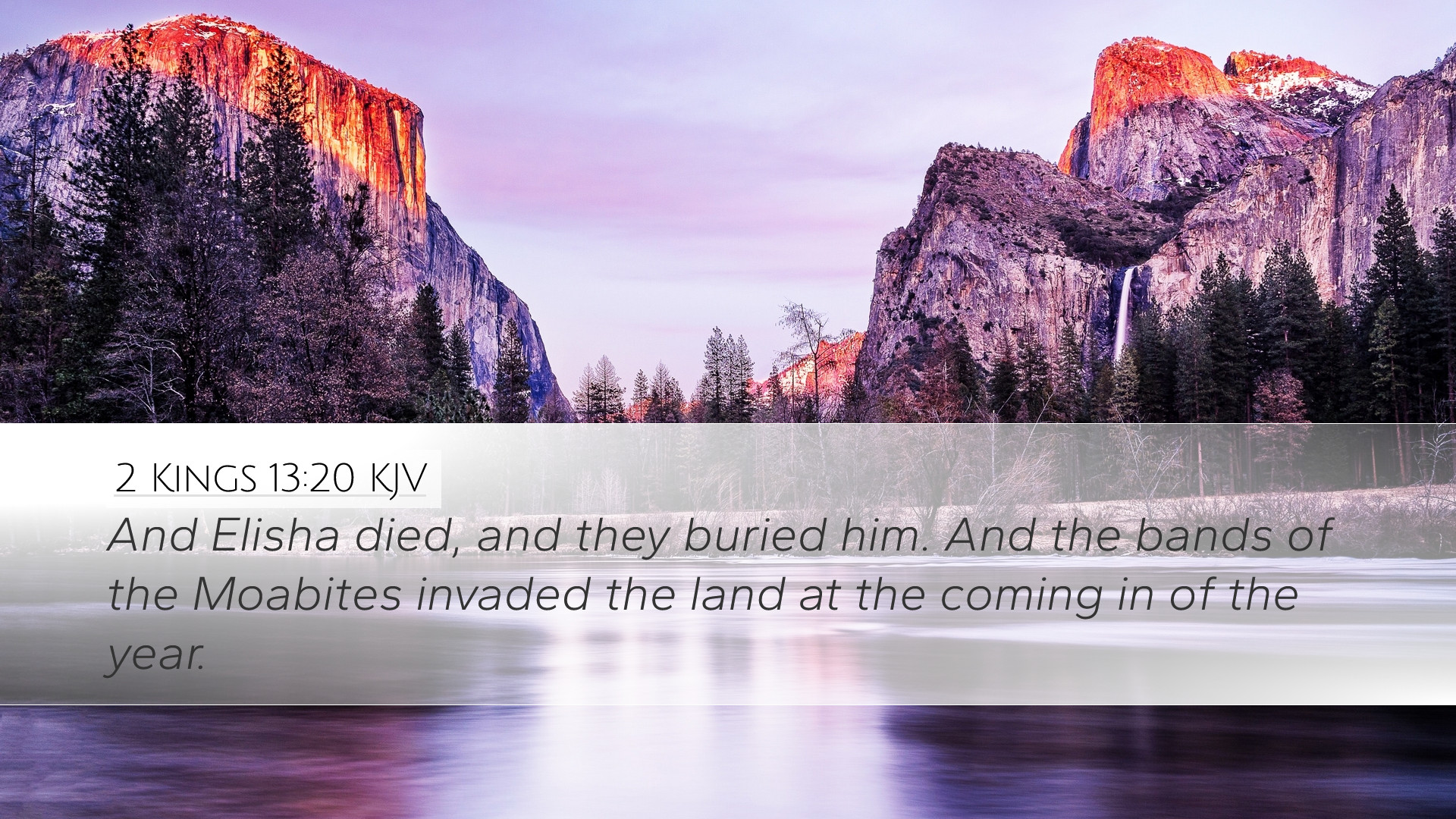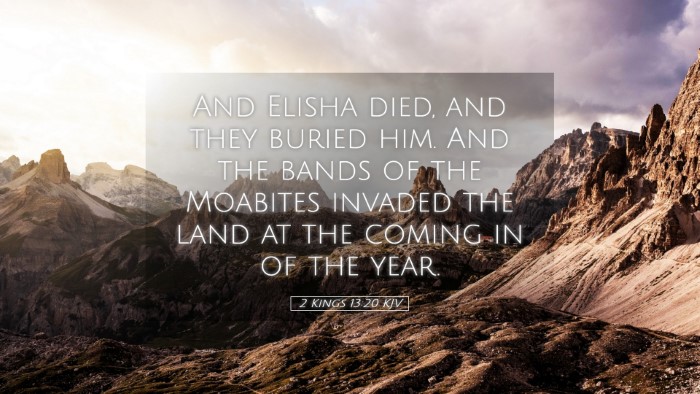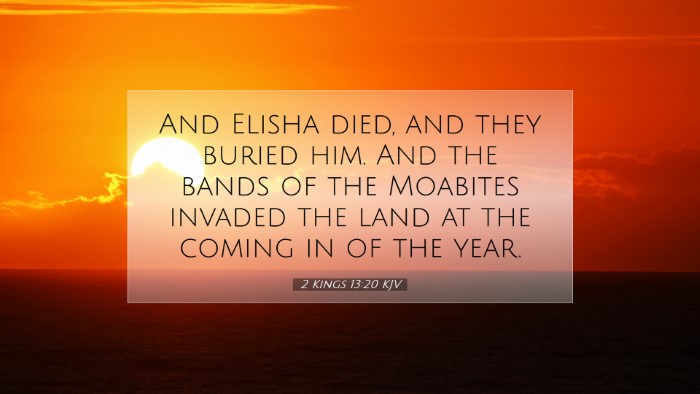Commentary on 2 Kings 13:20
Verse Context: The verse 2 Kings 13:20 states, “And Elisha died, and they buried him. And the bands of the Moabites invaded the land at the coming in of the year.” This passage marks a significant transition in the narrative of the kings of Israel and the prophetic ministry, highlighting themes of mortality, legacy, and divine sovereignty.
Overall Themes
- The Transition of Prophetic Authority: The death of Elisha signifies a shift in Israel's spiritual leadership. His life and ministry were marked by miraculous acts, and his absence raises questions about the continuity of prophetic influence in a time where Israel faces various external threats.
- The Sovereignty of God: The invading bands of Moabites symbolize God’s judgment or a broader warning to Israel about the consequences of disobedience and the need for repentance. This also shows that the divine purpose continues regardless of human leadership.
Insights from Matthew Henry
Matthew Henry emphasizes the significance of Elisha's death in the context of Israel's decline. He notes that Elisha, as a prophet, represented not just Israel’s spiritual health but also its moral state. Henry remarks:
“Elisha's death was a great loss to the people of Israel; the prophet was their principal support against all their enemies, both foreign and domestic.”
He draws attention to the Moabite invasions, highlighting how they came in the season when the land was most vulnerable. The incursion serves as a reminder of how crucial the prophet's role was to the stability of the nation.
Insights from Albert Barnes
Albert Barnes offers a historical analysis, noting that Elisha's death came at a time when Israel was already facing political turmoil. He states:
“The invasion of Moab is significant; it reflects the chaos and instability following the death of a leader who had provided a semblance of order.”
Barnes also discusses the implications of Israel's reliance on human leaders versus dependence on God. He points out that while Elisha was instrumental in God’s work, the focus should always remain on divine sovereignty rather than human authority.
Insights from Adam Clarke
Adam Clarke delves into the symbolic meaning behind Elisha's burial and its significance for the future of Israel. He reflects on the impact of Elisha's presence and ministry, stating:
“Elisha's influence lingered even in death, as seen in the miraculous story that follows where a dead man was revived by coming into contact with Elisha’s bones.”
Clarke emphasizes the continuity of God’s power even after the departure of His servants, indicating that God is not limited by human agents and can work mightily through any means He chooses.
Theological Reflections
- The Legacy of Leadership: The passage invites reflection on the nature of prophetic leadership. Effective leaders are those who convey God's truth and prepare God's people for challenges ahead, emphasizing the necessity of faith in divine provision over reliance on human institutions.
- Judgment and Mercy: The invasions by the Moabites serve as a dual message of judgment against Israel’s iniquity and a reminder of God's enduring mercy. Even amidst chaos, God’s care for His people remains evident, urging a return to faithfulness to His covenant.
Conclusion
In summary, 2 Kings 13:20 encapsulates a pivotal moment in Israel’s history, marked by the death of a key prophetic figure and the subsequent challenges faced by the nation. The insights from the commentaries reflect a multifaceted interpretation that emphasizes the themes of divine sovereignty, the importance of prophetic voices, and the continual call to repentance. For pastors, students, and scholars, this passage serves as an enduring reminder of God’s faithfulness and the necessity for His people to remain anchored in their covenant relationship with Him.


